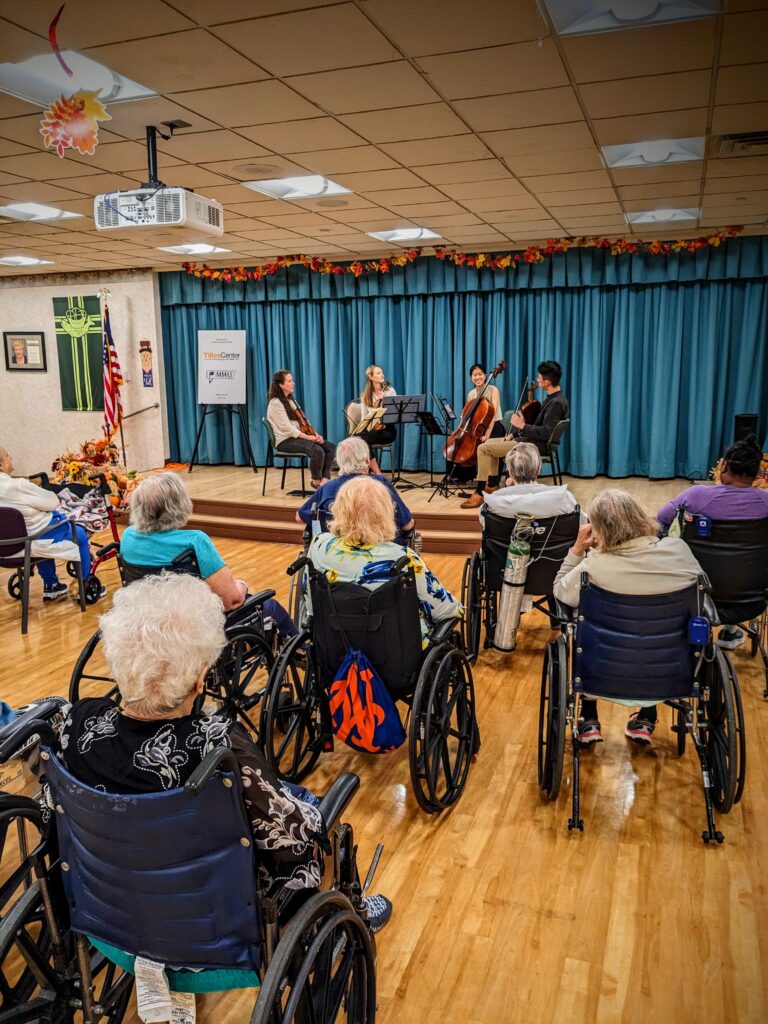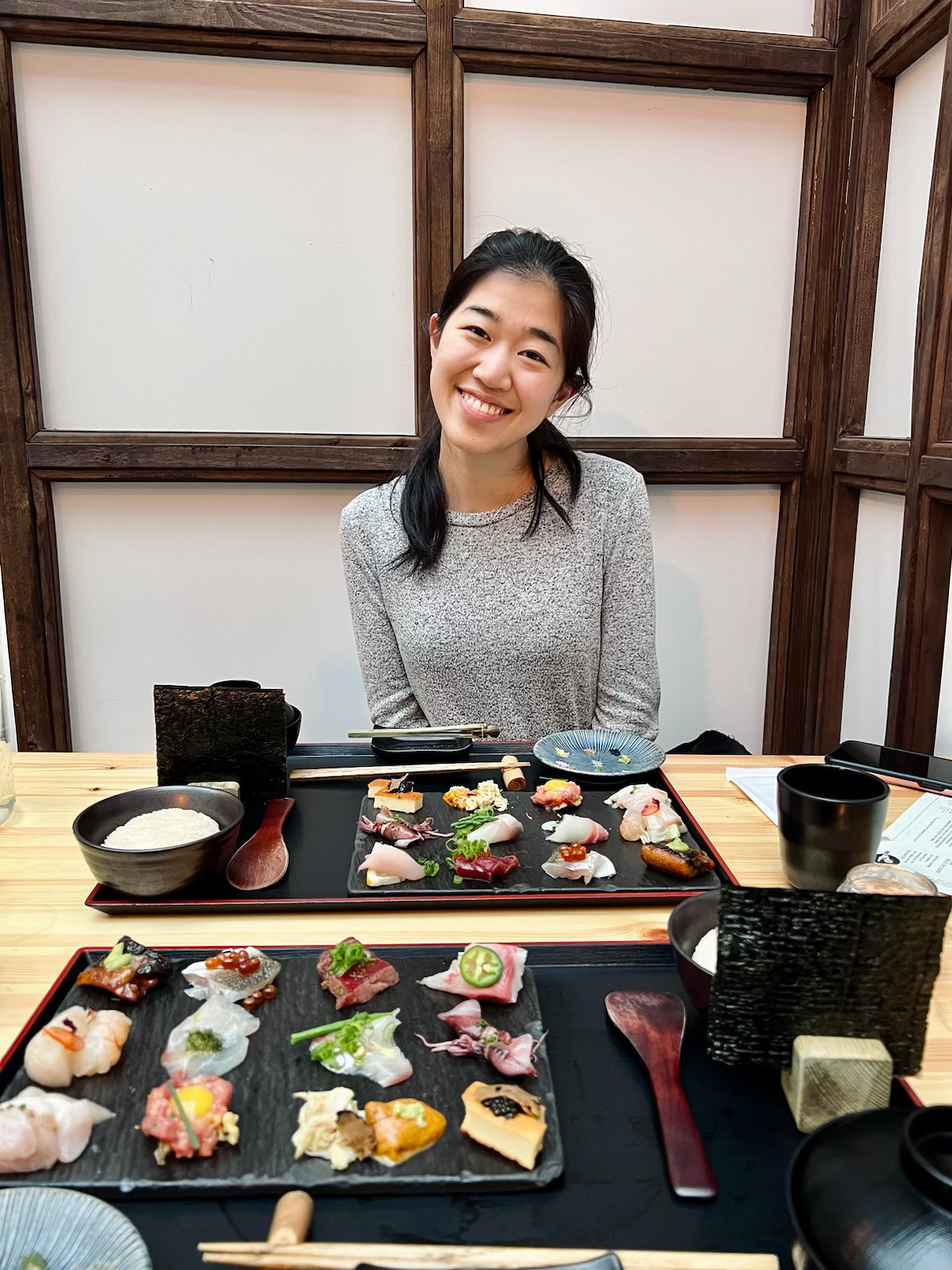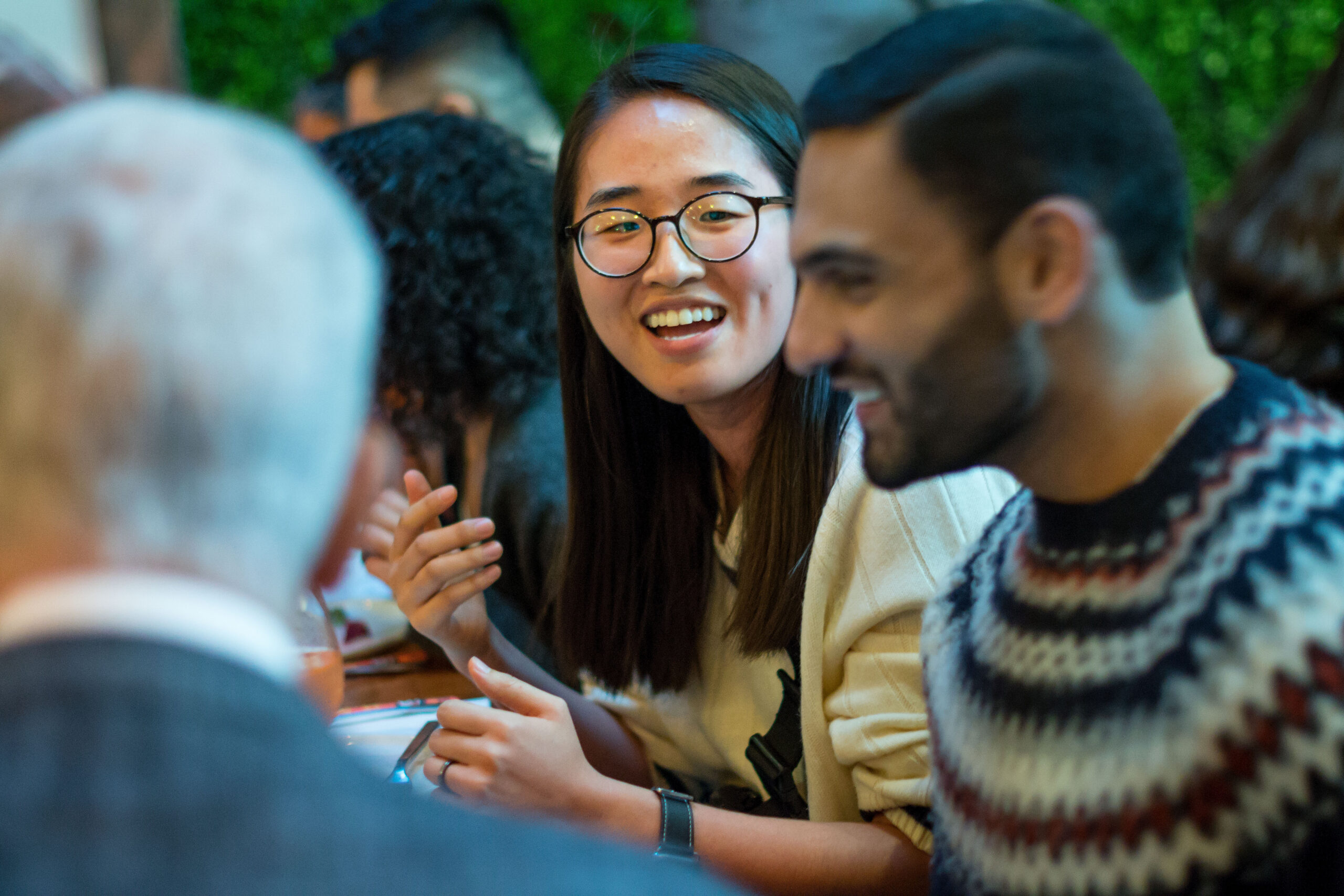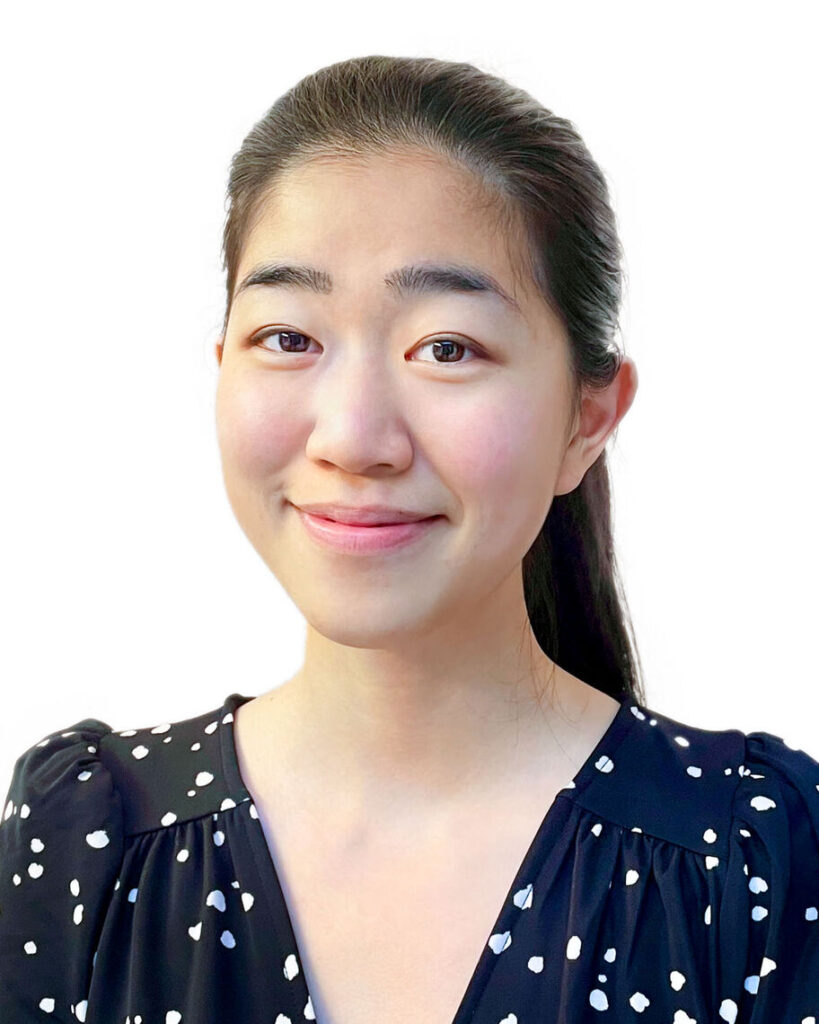- Fellow Highlights
LOOKING BACK AT THE FELLOWSHIP: Doctoral of Musical Arts Student Audrey Chen
2022 Paul & Daisy Soros Fellow Audrey Chen is a DMA student at The Graduate Center, CUNY.
Born and raised in Redmond, Washington, Audrey Chen is the daughter of Taiwanese immigrants from Taichung who immigrated to the United States in pursuit of further education. Through the support of her parents and a robust elementary school orchestra program, Audrey found her way to the cello and was challenged and inspired by its possibilities. As an undergraduate at Harvard University, Audrey studied Molecular and Cellular Biology while she took lessons at the New England Conservatory (NEC) as part of the Harvard/NEC Dual Degree Program. During her years at Harvard, she sought to better understand how to foster connections between people from different fields through shared musical experiences.
We caught up with Audrey about what’s next and what the Fellowship has meant to her:
Where are you with your graduate program now? Whether you’re still in school or you’ve graduated, what’s the next step for you or what are the steps you’ve taken after graduating?
I am currently pursuing my Doctor of Musical Arts in cello performance at the CUNY Graduate Center. I am nearing the end of this five-year journey, as September 2024 marks the start of my fifth and final year, which entails mostly working on my dissertation while also serving as a teaching mentor to some of my colleagues in the years below me. After graduation, I plan to continue expanding and building my performing career and musical vision, particularly as the cellist of my string quartet, the Terra String Quartet.

Can you tell us more about your graduate studies? What questions are you pursuing? What is the main focus of your studies?
My dissertation research currently focuses on understanding how Asian and Asian-American musicians construct their musical identities within the field of Western classical music. As the number of Asian performers in Western classical music increases, many no longer consider Asian musicians a “minority” within the field. However, the success of star musicians who are of Asian descent can create a misleading illusion of equity because Asian musicians often still deal with xenophobia, the worry that Asians are “taking over,” and audiences typecasting Asian musicians as exotic, obedient, technically perfect, and lacking soul and individuality. The goal of my research is to unpack these stereotypes from the lens of Asian classical musicians today. How are they navigating (or distancing from) these racialized narratives within their own careers, and with this knowledge, how might one reckon with issues of race and identity within a field that has historically asserted its universal and meritocratic culture? My research builds on the small but formidable work of scholars before me who are trying to offer the complexity and nuance within the Asian and Asian-American experience in classical music that it deserves.
There are so many paths beyond college; Why did you feel graduate school was the best next step for you personally and/or professionally? Was it hard to take the risk of going to school or something you always knew you wanted to do? What has it helped you figure out or accomplish?
Being in music, many individuals pursue multiple forms of graduate studies because it often takes a long time for a professional performing career to get rolling, and school provides the extra support and stability needed as that happens. Even more so, when I started my Doctorate of Musical Arts in the midst of the pandemic, there were no live performances happening, and I wasn’t even sure that I knew what my role could be as a professional musician. I feel very lucky that my studies helped to strengthen my understanding of how I can make an impact through music beyond the stage, giving me purpose and stimulation during difficult years but also offering different perspectives on music-making that I bring into my artistic vision now.
How do you describe The Paul & Daisy Soros Fellowships for New Americans program to others?
When I first heard about the Paul and Daisy Soros Fellowships for New Americans, I was really touched to see that it was specifically giving a voice to the people who are directly impacted by the immigrant experience. This Fellowship is incredibly special as it fosters that lifelong community of people who have such unique families, interests, and visions, but who all share a common theme within their upbringing.

What advice would you give to someone who is thinking of applying to The Paul & Daisy Soros Fellowships for New Americans?
I feel that there is so much power in being a good storyteller. Find your own set of stories that matter to you and discover the ways in which you can tell them that bring your unique perspective to life. A good exercise I did was imagine myself reading a book or watching a film about my family, my childhood, or my professional life now, and I would ask myself: what would make me laugh, what would make me cry, what would make me feel inspired? I felt that it helped me to overthink a little less or to be less hard on myself when I tried to view myself from the outside and embrace my story for what it was. ∎
Keep Exploring
-
 Read more: The Public Voices Fellowship of PD Soros, in partnership with the Oped Project: Year Four
Read more: The Public Voices Fellowship of PD Soros, in partnership with the Oped Project: Year FourThe Public Voices Fellowship of PD Soros, in partnership with the Oped Project: Year Four
-
Read more: NOT ON MY RESUME: Ming Hsu Chen
- Fellow Highlights
- Fellows in Action
NOT ON MY RESUME: Ming Hsu Chen
-
 Read more: Kathy Ku Steps into Leadership as PDSFA Chair
Read more: Kathy Ku Steps into Leadership as PDSFA Chair- Board of Directors
- Fellowship News
Kathy Ku Steps into Leadership as PDSFA Chair
-
 Read more: Q&A with MD/PhD Student Silvia Huerta Lopez
Read more: Q&A with MD/PhD Student Silvia Huerta LopezQ&A with MD/PhD Student Silvia Huerta Lopez
